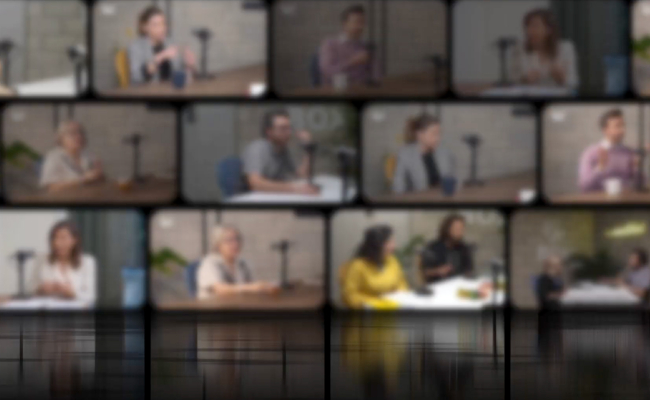When we first launched Barra El Box, we weren’t sure what kind of conversation we were stepping into.
We knew we had questions about Lebanon, about collapse, about social responsibility, about absence and presence, and about the role of the private sector in the middle of all that. But what we didn’t expect was how layered the answers would be. Or how much those answers would challenge us to rethink not only what we do as a company, but why we do it, and for whom.
The first episodes were never about solutions, but about looking at the full picture: the economic free fall, the void, and the gaps left by a weakened public sector, and asking ourselves: How do you build something effective in the ruins?
And more importantly: What’s your responsibility when the system isn’t just broken, but breaking you too?
The stories we heard weren’t abstract.
They came from lawyers holding the line on justice, volunteers filling gaps left by institutions, entrepreneurs working in silence, activists burned by experience but still hopeful, and thinkers pushing back against decades of normalized dysfunction. What united them wasn’t optimism. It was something quieter: Conviction. And an unwillingness to operate in denial.
Why We Started Macro
We began our journey with a wide-angle lens because you can’t understand your role in a system unless you understand the system itself.
We asked:
- What does corporate responsibility actually mean?
- How do we separate real accountability from PR campaigns wrapped in empathy?
- What does it mean for a company to be “ethical”? In Lebanon?
We talked about supply chains and labor, but also about imagination, about how the private sector can do more than just survive. It can choose to become relevant to its context. Not by “fixing the state,” but by refusing to ignore it.
A Shift in Language
We realized that words like “support,” “community,” “impact,” have been used so often, and so loosely, that they’ve started to lose meaning.
So, we started asking: What does real support look like? Is it a donation? Or is it refusing to make business decisions that deepen inequality? Is it a CSR report? Or is it a long-term commitment to hiring practices, pricing models, and local partnerships that don’t leave people behind?
We also learned that doing the right thing is often inconvenient. But that inconvenience? That’s the cost of relevance.
What’s Next: From the System to the Sector
Now that we’ve looked at the whole, it’s time to explore the parts.
In the upcoming episodes, we’ll be zooming in sector by sector, industry by industry. Not to “cover” them, but to interrogate them.
We’ll ask: What are the blind spots in each sector? Who is being left out of its growth narrative? What would meaningful participation from the private sector actually look like?
From agriculture to culture, from electricity to mobility, we’re not here to “celebrate innovation” or “tell success stories.” We’re here to ask the hard questions. And when we can, to offer a different kind of answer.
Why This Still Matters
Lebanon is a place of deep paradoxes. People survive, but don’t live. Work exists, but labor is exhausted. Talent is everywhere, but trapped. What we’ve learned from this season is that “hope” is not a strategy. But relevance is. And relevance comes from asking: Who are we building for? And what are we willing to risk to build with them?
Barra El Box was never just a podcast, but a practice of listening, of showing our work, and of refusing the comfort of silence.
Let the past episodes be the preface. The real conversation starts now.
